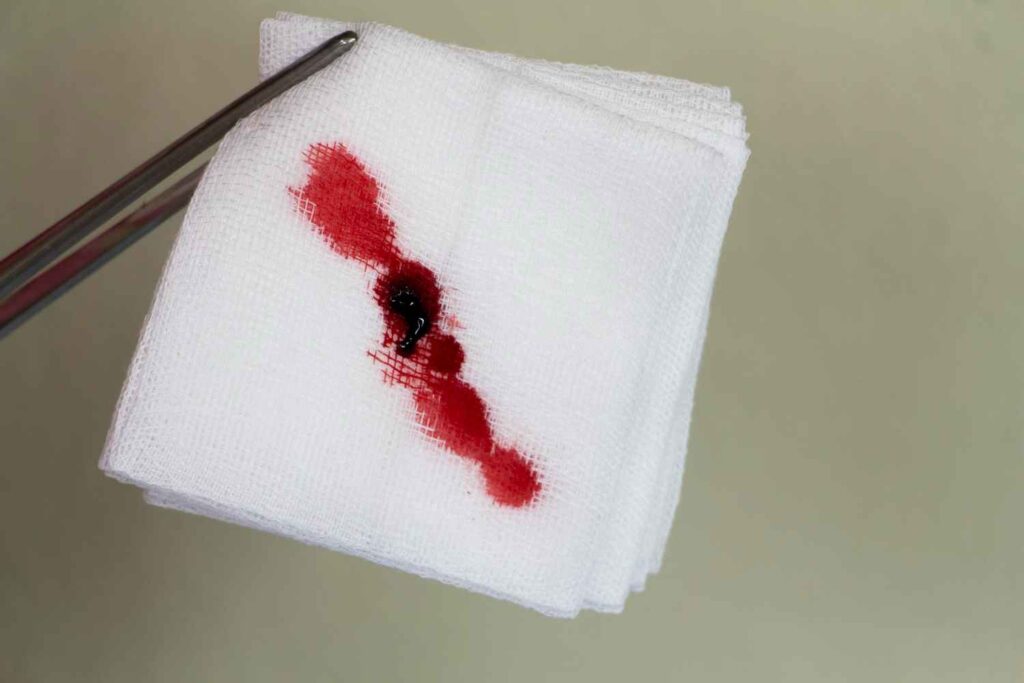For women trying to conceive, the days leading up to a missed period can bring a mix of hope, anxiety, and confusion. Spotting or light bleeding can make you wonder: “Is this implantation bleeding, a possible early sign of pregnancy, or just the start of my period?”
Understanding the difference between implantation bleeding and period is crucial, not only for peace of mind but also for knowing when to take a pregnancy test or consult a fertility specialist. In this comprehensive guide, we’ll explain the key differences, timing, symptoms, and tips for women experiencing early signs of pregnancy.
What is Implantation Bleeding?
Implantation bleeding occurs when a fertilized egg attaches itself to the lining of the uterus. This process, known as implantation, usually happens 6–12 days after ovulation, which is often a few days before your expected period.
When the embryo burrows into the uterine lining, tiny blood vessels may break, causing light spotting or bleeding. Implantation bleeding is considered one of the earliest signs of pregnancy, though not every woman experiences it.
Some women may mistake this light bleeding for a very short or unusually light period. That’s why understanding the differences between implantation bleeding and period is vital for women trying to conceive.
What is a Menstrual Period?
A menstrual period occurs when a woman’s body sheds the thickened lining of the uterus because pregnancy has not taken place. Menstrual bleeding is usually:
- Heavier than implantation bleeding
- Lasts longer, generally 3–7 days
- Bright or dark red in colour
- Sometimes accompanied by cramps, bloating, and mood changes
Periods are generally predictable for women with regular cycles, but variations in cycle length or flow can sometimes make it confusing to distinguish between a light period and implantation bleeding.
7 Key Differences Between Implantation Bleeding vs Period
Let’s break down the main differences that can help you identify whether your bleeding is likely implantation bleeding or a period.
1. Timing of Bleeding
- Implantation bleeding usually occurs 6–12 days after ovulation, which is just before or around the time your period is expected.
- Period bleeding typically occurs 12–16 days after ovulation (for a regular 28-day cycle).
Tip: If spotting occurs earlier than usual, pay attention to other symptoms of early pregnancy, such as fatigue, breast tenderness, or mild cramping.
2. Flow and Intensity
- Implantation bleeding: Very light Spotting, sometimes only noticeable when wiping or in underwear. The flow does not increase over time.
- Period: Starts light but gradually becomes moderate to heavy, requiring the use of sanitary pads, tampons, or menstrual cups.
Implantation bleeding is generally subtle, whereas period bleeding is more obvious and heavier.

3. Colour of Blood
- Implantation bleeding: Often pink, brown, or rust-colored. Rarely bright red.
- Period: Typically bright red to dark red, sometimes with clots.
Tip: Brown Spotting may indicate older blood, which is common in implantation bleeding.
4. Duration
- Implantation bleeding typically occurs within a few hours to 2 days.
- Period: Lasts 3–7 days, depending on individual cycles.
Short, light spotting is a strong sign that it could be implantation bleeding rather than a whole menstrual period.
5. Associated Symptoms
- Implantation bleeding: Can be accompanied by mild cramping, breast tenderness, fatigue, or mood changes — early signs of pregnancy.
- Period: Often comes with heavier cramps, bloating, back pain, headaches, and PMS symptoms.

Implantation cramping is generally milder than period cramps.
6. Clotting
- Implantation bleeding: Usually free of clots. Only light Spotting is present.
- Period: Blood clots may be present, especially during the heaviest days of the cycle.
7. Pregnancy Test Results
- Implantation bleeding happens before the body produces enough hCG (pregnancy hormone). A test taken too early may yield a negative result.
- The most accurate results come from taking a pregnancy test 3–5 days after implantation bleeding stops or after a missed period.
Quick Comparison Table
| Feature | Implantation Bleeding | Period |
| Timing | 6–12 days post ovulation | Regular monthly cycle |
| Flow | Very light spotting | Moderate to heavy |
| Color | Pink / Brown | Bright / Dark red |
| Duration | Hours to 2 days | 3–7 days |
| Symptoms | Early pregnancy signs | PMS symptoms |
| Clotting | None | May be present |
Common Questions Women Ask About Implantation Bleeding
1. How common is implantation bleeding?
Around 30% of women may notice implantation bleeding during early pregnancy.
2. Can implantation bleeding be mistaken for a period?
Yes, because it occurs close to the expected period. The main differences are flow, colour, and duration.
3. Is implantation bleeding painful?
Generally, implantation bleeding causes mild or no cramps, much lighter than period cramps.
4. When should I take a pregnancy test?
Wait at least 3–5 days after spotting ends or after a missed period for the most accurate result.
5. Can implantation bleeding happen more than once in a cycle?
No. Implantation bleeding occurs once during early pregnancy when the embryo attaches to the uterine lining.
Tips to Track Your Cycle and Spot the Differences
- Keep a menstrual diary – note cycle dates, flow, and spotting.
- Observe your body – monitor cramping, breast tenderness, nausea, or fatigue.
- Take a pregnancy test if Spotting occurs before your period or your period is late.
- Consult a fertility specialist if your cycles are irregular or you’re struggling to conceive.
When to See a Doctor
While light Spotting is often harmless, see a doctor if you experience:
- Heavy bleeding or clots outside your period
- Severe abdominal pain
- Prolonged bleeding lasting more than 7 days
- Recurrent Spotting or irregular cycles
- Concerns about pregnancy or fertility
Why Choose Boon IVF, Hyderabad?
At Boon IVF, we understand the anxiety and questions that come with early pregnancy signs. Our team provides:
- Personalized fertility consultations
- Advanced diagnostics and treatment options, including IUI, IVF, and ICSI
- Compassionate support throughout your fertility journey
If you’re trying to conceive and are unsure about implantation bleeding vs period, schedule a consultation with Boon IVF, Hyderabad today. Our experts can guide you and provide the support you need to achieve your dream of parenthood..


